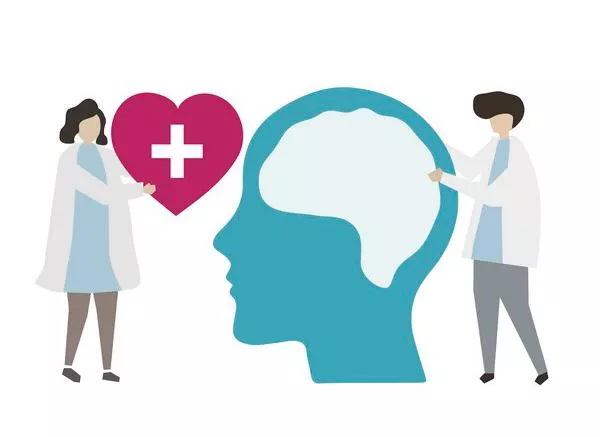Self-hatred, a profound dislike or aversion towards oneself, can be a distressing and debilitating experience. While it can arise from various life circumstances and personal experiences, mental illness often plays a significant role in fostering feelings of self-loathing and unworthiness. In this comprehensive guide, we delve into the complex relationship between mental illness and self-hatred, exploring the underlying factors and conditions that contribute to this destructive mindset.
Introduction to Self-Hatred
Self-hatred is a deeply ingrained emotional state characterized by intense feelings of dislike, disgust, and resentment towards oneself. Individuals struggling with self-hatred may experience a pervasive sense of worthlessness, inadequacy, and shame, leading to profound emotional suffering and impaired functioning in various aspects of life.
While self-hatred can stem from a multitude of factors, including childhood trauma, abusive relationships, and societal pressures, mental illness often serves as a significant catalyst for the development and perpetuation of self-loathing behaviors and thought patterns. Understanding the interplay between mental health conditions and self-hatred is crucial for effective intervention and support.
6 Common Mental Illnesses Associated with Self-Hatred
Several mental health disorders are commonly associated with self-hatred, each contributing unique challenges and triggers that exacerbate feelings of inadequacy and self-loathing. By exploring these conditions in detail, we can gain insight into the complex interplay between mental illness and self-hatred.
1. Depression: Depression, a mood disorder characterized by persistent feelings of sadness, hopelessness, and loss of interest or pleasure in activities, often fosters self-hatred and negative self-perceptions. Individuals with depression may experience pervasive feelings of worthlessness, guilt, and self-blame, leading to a distorted sense of self and deep-seated feelings of unworthiness.
2. Anxiety Disorders: Anxiety disorders, including generalized anxiety disorder (GAD), social anxiety disorder, and obsessive-compulsive disorder (OCD), can contribute to self-hatred through excessive worry, fear of judgment, and intrusive thoughts. Individuals with anxiety disorders may engage in self-critical behaviors and negative self-talk as a means of coping with overwhelming feelings of anxiety and insecurity.
3. Post-Traumatic Stress Disorder (PTSD): PTSD, a psychiatric condition that can develop following exposure to traumatic events, often leads to self-hatred through feelings of shame, guilt, and self-blame associated with past experiences. Individuals with PTSD may struggle with intrusive memories, flashbacks, and emotional numbness, all of which can fuel self-loathing and a distorted sense of self-worth.
4. Borderline Personality Disorder (BPD): BPD is a complex mental health disorder characterized by intense emotional instability, impulsivity, and difficulties in interpersonal relationships. Individuals with BPD may experience profound feelings of self-hatred, often stemming from fear of abandonment, identity disturbances, and a pervasive sense of emptiness and self-loathing.
5. Eating Disorders: Eating disorders, such as anorexia nervosa, bulimia nervosa, and binge-eating disorder, are often accompanied by deep-seated feelings of self-hatred and body dissatisfaction. Individuals with eating disorders may engage in maladaptive behaviors, such as restrictive eating or purging, as a means of coping with negative body image and low self-esteem.
6. Substance Use Disorders: Substance use disorders, including alcohol addiction and drug dependence, can exacerbate feelings of self-hatred through guilt, shame, and remorse associated with addictive behaviors. Individuals struggling with substance abuse may experience a cycle of self-destructive behavior and negative self-talk, further perpetuating feelings of unworthiness and self-loathing.
See Also: Schizoaffective Disorder: Types, Causes, Symptoms & Treatment
Underlying Factors Contributing to Self-Hatred
While mental illness plays a significant role in fostering self-hatred, several underlying factors contribute to the development and perpetuation of this destructive mindset. By addressing these factors, individuals can gain insight into the root causes of their self-loathing behaviors and work towards healing and self-acceptance.
Early Childhood Experiences: Childhood experiences, such as neglect, abuse, and trauma, can profoundly impact self-esteem and self-perception later in life. Individuals who experienced invalidation, rejection, or emotional neglect during childhood may internalize negative beliefs about themselves, leading to feelings of self-hatred and inadequacy.
Maladaptive Coping Mechanisms: Coping mechanisms adopted in response to stress, trauma, or adversity can contribute to self-hatred when they involve self-destructive behaviors or negative self-talk. Maladaptive coping mechanisms, such as self-isolation, substance abuse, or self-harm, may provide temporary relief from emotional pain but ultimately reinforce feelings of unworthiness and self-loathing.
Social Comparison and Perfectionism: Social comparison and perfectionistic tendencies can fuel self-hatred by fostering unrealistic standards and expectations for oneself. Individuals who constantly compare themselves to others or strive for unattainable ideals may experience chronic feelings of failure and inadequacy, leading to a cycle of self-criticism and negative self-evaluation.
Negative Core Beliefs: Negative core beliefs, deeply ingrained assumptions about oneself, others, and the world, can contribute to self-hatred by shaping perceptions of self-worth and identity. Common negative core beliefs include “I am unworthy,” “I am unlovable,” or “I am fundamentally flawed,” which can undermine self-esteem and perpetuate feelings of self-loathing.
Cognitive Distortions: Cognitive distortions, irrational or exaggerated thought patterns, can distort perceptions of reality and contribute to self-hatred. Common cognitive distortions associated with self-hatred include black-and-white thinking, catastrophizing, and personalization, which can reinforce negative self-perceptions and undermine self-esteem.
Lack of Self-Compassion: A lack of self-compassion, the ability to show kindness and understanding towards oneself in times of difficulty or failure, can fuel self-hatred and self-criticism. Individuals who struggle to practice self-compassion may engage in harsh self-judgment and negative self-talk, exacerbating feelings of unworthiness and inadequacy.
Conclusion
Self-hatred is a complex and multifaceted emotional state often intertwined with mental illness and underlying psychological factors. By understanding the underlying causes and risk factors associated with self-hatred, individuals can gain insight into their own experiences and work towards healing and self-acceptance. Through therapy, self-care practices, and supportive relationships, individuals affected by self-hatred can embark on a journey of self-discovery and cultivate compassion, resilience, and self-love.


